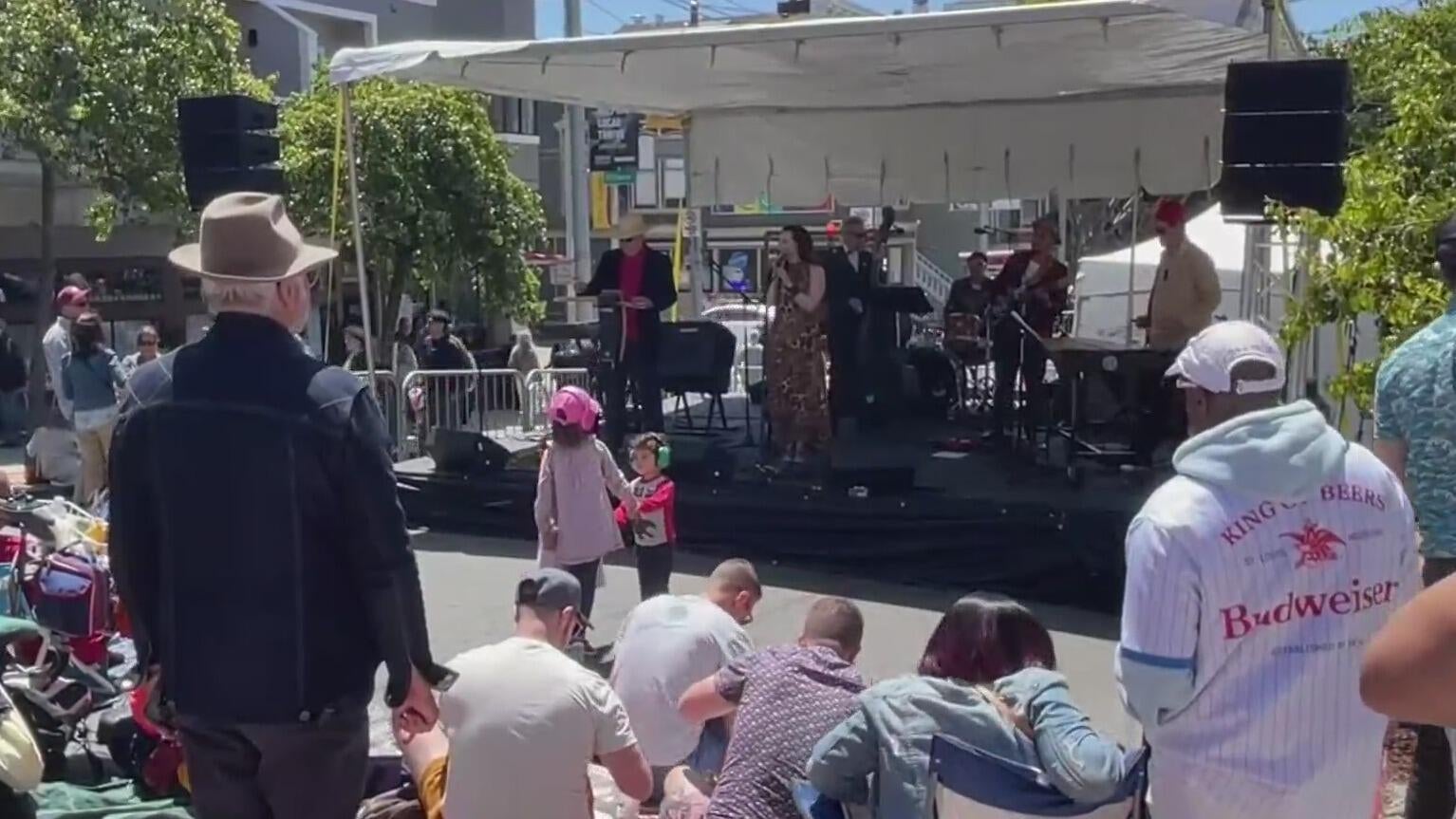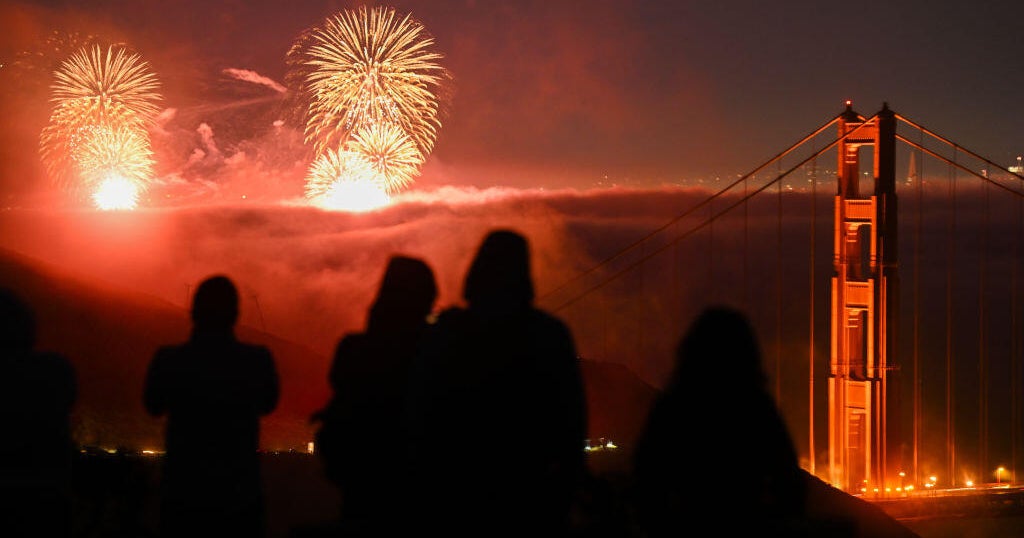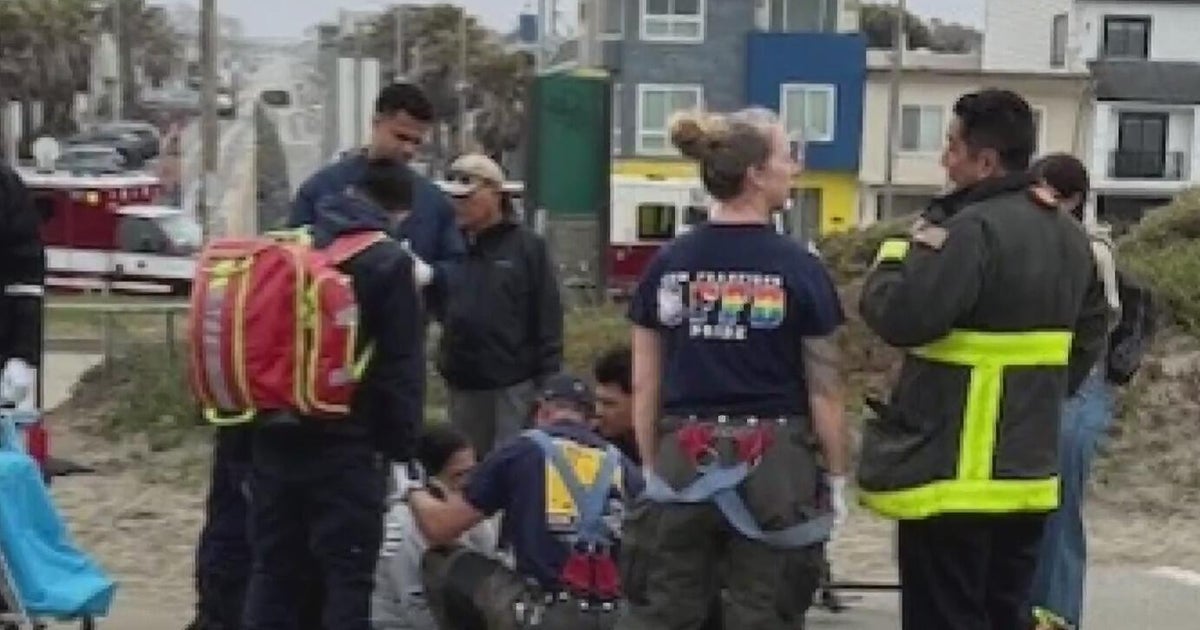Thousands pack San Francisco streets for Fillmore Jazz Festival despite its uncertain future
Tens of thousands of people jammed into 12 blocks of San Francisco on Saturday for the weekend-long Fillmore Jazz Festival.
But it almost didn't happen this year. In April, organizers announced that the event would be canceled for financial reasons, only to be saved by an unnamed donor. But the future of the event may still be in doubt, and the biggest obstacle could be the city itself.
From the smooth sounds of Brazilian jazz to the joyful gospel music of Glide Memorial Church, the Fillmore Jazz Festival opened its two-day run, honoring styles of music that once earned the neighborhood the nickname "The Harlem of San Francisco."
"You see it. It's a great event," said Shadow Hammond, a hat vendor whose father worked as a jazz saxophonist. "And it's a nice area. The Fillmore District's really famous. It's been around for a while."
And it was happening at a time when things can be pretty quiet in the city.
"A weekend that's normally dormant, July 4th, that tends to...all the San Franciscans leave," said Timothy Omi, president of the Fillmore Merchant Association. "And we're going to have 30,000 people coming up and down the corridor on two days, 30,000 each day."
Omi is the volunteer head of a three-person team that puts on the Fillmore Jazz Festival each year. But three months ago, he announced that it would be canceled for reasons that he struggled to describe diplomatically.
"The emphasis was based on," he said, with a long pause, "an inefficient policy. And now we have to identify inefficiencies. And I feel like the new mayor, working with them, we can find them and potentially cut through the major holdups."
In other words, the city charges a fortune to put on public street festivals. Omi said the traffic control officers at every intersection each cost about $230 per hour and, afterward, event organizers have to pay people to sift through the garbage, separating trash from recyclables before disposal.
And because Fillmore is a transit corridor, they have to pay to detour the busses for the weekend. All in all, it drives the cost of the event up by over half a million dollars, something that the non-profit simply can't handle anymore.
"Fillmore Street Jazz Festival would not have happened if it wasn't for one distinct, large donation that came from a concerned individual who basically said, this a cultural heritage, this is an event that's been going on for 40, 50 years. And he came in and he stepped up to the plate," said Maryo Moagnnam. "But we're saying, OK, what happens next year, or the following years?"
Mogannam is president and co-founder of a philanthropic group called Avenue Greenlight that, since the pandemic, has provided grants for community projects to help business districts in the city. They've added lighting in some areas and murals in others. Recently they raised $3 million in private funding to partner with Public Works in powerwashing city sidewalks.
"We can come in and we can clean the streets and we can hand you a nice clean slate. But I really want to conscript the city to help be part of the solution," said Mogannam at a press conference announcing the partnership.
At the jazz festival, Elise Jacobsen, grant director for Avenue Greenlight, said it's probably unrealistic to expect the government to solve all of the City's problems by itself.
"There's so much that needs to be done," she said. "And if we can all do our part, it's really important. I think it's difficult to do everything all at once, perfectly. So, if we can all try to do what we can, and if we can make the sidewalks a little cleaner if we can put up lighting and then other organizations are filling other gaps. I think we're all working together to make our city amazing."
But some believe those "gaps" to be the City's responsibility. Private donors are having to step up to cover the costs instead. Mogannam said Avenue Greenlight doesn't mind helping out, but when it comes to the street festivals, they do have one request.
"Don't treat us like tourists," he said. "Sometimes the City sees us as an opportunity, like some other large productions, where it's a financial opportunity to charge for services. But we're much different than that. And that's what Avenue Greenlight is supporting."
The jazz festival's organizers say they are encouraged by the willingness of Mayor Lurie's new administration to look for ways to make planning events easier and less costly. Lots of people are working hard to shed San Francisco of its "doom loop" image. If it takes private citizens to do that, so be it. But it would be nice if the City didn't get in their way.




